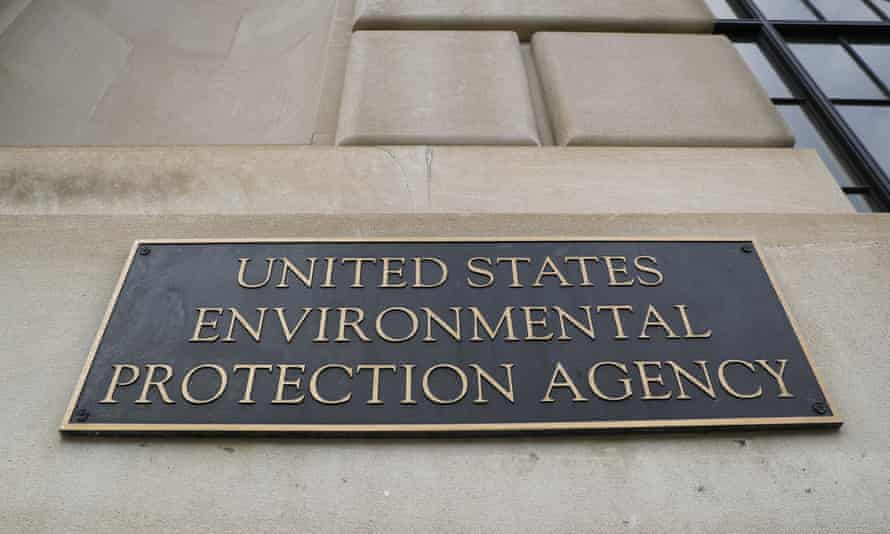Production of forever chemicals emits potent greenhouse gases, analysis finds
EPA data reveals that one of America’s biggest PFAS-making plants is second largest polluter of highly damaging HCFC-22 gas

A new analysis of Environmental Protection Agency data has revealed that PFAS chemicals – often known as “forever chemicals” due to their longevity in the environment – are contributing to the climate crisis as their production involves the emission of potent greenhouse gases.
In recent years, an ever-expanding body of scientific research has shown that per- and polyfluoroalkyl substances (PFAS) are among the most toxic substances widely used in consumer products.
Now the new report shows that one of America’s largest PFAS manufacturing plants is also the second largest polluter of the destructive greenhouse gas HCFC-22, which is about 5,000 times more potent than carbon dioxide.
“This is a sad-but-clear example of how toxic chemicals and climate change are connected: manufacturing PFAS chemicals not only pollutes people and the environment, but releases potent greenhouse gases, adding to the climate crisis,” said Erika Schreder, co-author of the report and science director for Toxic-Free Future.
HCFC-22 emissions are banned worldwide under the Montreal Protocol, a 1987 international environmental treaty, because the chemical is so destructive to the ozone layer. The plant of the PFAS manufacturer Daikin in Decatur, Alabama, released about 240,000 pounds of HCFC-22 in 2019 – the equivalent of more than 1bn pounds of carbon dioxide, or what would be released from driving 125,000 cars every day for a year.
“It seems like you wouldn’t want to let companies release hundreds of thousands of pounds of this gas every year,” Schreder said.
Diakin’s plant is one of many PFAS plants around the country, and many of the nation’s top 50 HCFC-22 polluters are “forever chemical” manufacturers. A loophole in the Montreal treaty allows companies to release HCFC-22 when it’s used as an intermediate in production of another chemical, such as PFAS.
Daikin’s plant appears to be the nation’s only one that produces PFAS used to make food packaging water and grease resistant, Schreder said.
PFAS are also applied to a wide range of consumer products, from cosmetics to clothing to nonstick cookware. Though they make effective barriers, they are also linked to serious health problems like cancer, kidney and liver disease, birth defects, reduced immunity and more. Several states have banned their use in food packaging, and legislation to do the same will soon be introduced in Congress.
The report notes that fast-food companies use a large amount of the Daikin plant’s PFAS in their wrappers. Toxic-Free Future used Food and Drug Administration data to estimate that Burger King treats its Whopper wrappers with about 21,900 pounds of PFAS annually, and McDonald’s treats its Big Mac wrappers with about 24,700 pounds of PFAS annually.
The nonprofit uses such findings to urge companies to phase out PFAS, and so far has secured commitments from McDonald’s, Whole Foods, Chipotle, Wendy’s and more.
“When Burger King decides to continue using PFAS, it needs to know that its decision has very serious impacts on communities in Alabama … and for the planet because of the climate impact,” Schreder said.
Toxic-Free Future discovered Daikin’s “dirty secret” as it investigated other environmental threats posed by the factory. At least three workers there have died on the job, and the company has poisoned a drinking water and recreation source for tens of thousands of downstream residents. Daikin recently had to pay $5m to help local municipalities clean up PFAS contamination.
Meanwhile, paper mills that produce food packaging treated with Daikin’s PFAS can release the chemicals to nearby water and sludge. FDA data shows that each PFAS-applying mill could be responsible every day for discharges of up to about 180 pounds of PFAS directly to surface water, along with up to 1,600 pounds in sludge, the report notes.
Daikin media representatives did not respond to a request for comment.